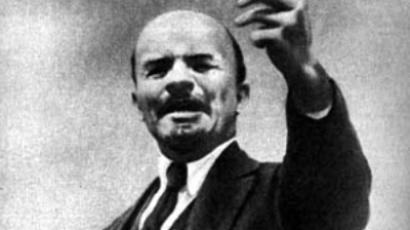Oasis of socialism where cows listen to Tchaikovsky
A village in Russia’s south has successfully adopted a model of socialism and survives with no problems in the 21st century market economy surrounding them, and celebrate Labour Day with all the Soviet traditions.
The Frunze household in Bessonovka village in Russia's southern region of Belgorod is by all accounts not the typical farm one would normally think of. Irrespective of the fact that it has been 18 years since the Soviet Union collapsed but this farm could be seen as a microcosm of socialism.
Cows here like the finer things in life: organic food, twice-daily massages and, of all things, classical music. Local dairymaids say the bovines are inclined towards Italian arias and the works of Tchaikovsky. Amazingly, cows at the Frunze farm give twice as much milk as those at neighboring farms.
“Life and work at our homestead is like in the times of the USSR. Things have not got worse, but better since then. We only boast of improvements. For a two-ruble coupon we can get a full-course meal – borsch, a steak or even two, and get as much milk as we want,” says dairymaid Galina Semenets.
Two Russian roubles is less than ten cents. One can't even get a packet of matches for this money. The average monthly salary of a milkmaid like Galina at this farm is $700. It is no wonder that locals don't rush to leave their farm for the big city, as children can dream of becoming something more romantic than just another lawyer or an analyst.
“I want to be a tractor driver,” one little local boy dreams. “And I want to be a soldier,” says another.
A month at a kindergarten with English classes, dances and piano costs parents in the village as little as fifteen cents.
To support this paradise, a quarter of the farm's annual profits, some two million dollars, are spent by the farm annually on social programmes alone. What the cows and pigs produce is enough to provide a living for its workers.
The man who has turned Lenin's dreams into reality is 87-year-old Vasily Gorin and has been running the Frunze farm for half a century now. In this time, Vasily has managed to do in a microcosm what the whole Soviet Union failed to do – build a society of equal and happy people.
“I've always tried to give people what they wanted to get, what will be good for them. Even in the hardest times we do our best so that people are not hungry, are well dressed, are not cold and have jobs. This is most important. We live in a capitalist society. We’re quite comfortable in a market economy. So what is it? Well, capitalism of course!” says Vasily Gorin.
In addition to the farm work, there are ten different bands that play at the farm. Several of their alumni are now leading musicians at the Bolshoi Theater and in the President's state orchestra. Recently the farm's choir got the addition of a dozen local truck drivers.
Before their audience had consisted mostly of cows and pigs, now they will sing for several thousand villagers who will gather for the Labor Day demonstration. Men say that if one day someone invited them to perform in Red Square they would not hesitate.













